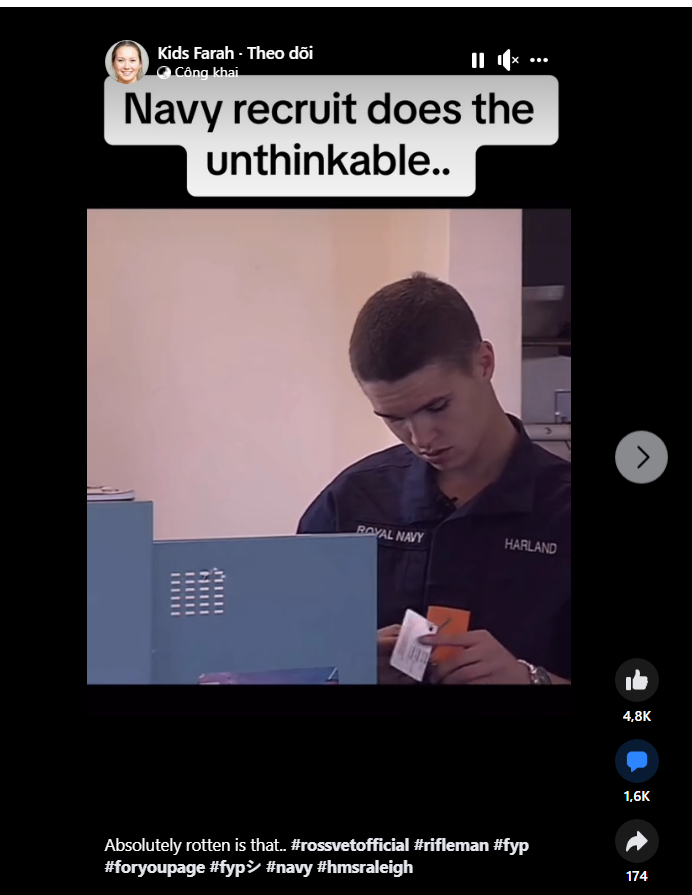NEXT PART AT THE END OF THE ARTICLE
Joining the police force has long been a dream for many young individuals, inspired by the desire to serve their communities and uphold justice. However, like any career, the reality of policing often differs from the expectations. In this article, we delve into the experiences of a young man facing challenges within the police force and explore whether these difficulties align with reality.

The Idealized Vision
A Noble Calling
For many, a career in law enforcement represents a noble calling. The idealized vision often includes protecting the innocent, apprehending criminals, and maintaining peace and order. Young individuals may be drawn to this profession with a strong sense of purpose and duty.

The Challenges Faced
Navigating Complex Situations
Once on the job, young officers can encounter various challenges they might not have anticipated. Policing often involves dealing with high-stress situations, exposure to traumatic events, and navigating complex legal and ethical dilemmas. Additionally, the pressure to make quick, life-altering decisions can weigh heavily on officers.
Balancing Public Expectations
The Thin Blue Line
Officers often find themselves at the intersection of public expectations and their professional responsibilities. The public’s perception of the police force can be influenced by media portrayals and societal issues. Officers may face scrutiny, criticism, and even hostility from some members of the community.

Training and Support
Preparation for the Job
Many police departments provide rigorous training programs to prepare officers for the realities of the job. This training includes de-escalation techniques, conflict resolution, and understanding community dynamics.
However, the challenges officers face in the field can still be overwhelming.
Training and Idealism:
Many young individuals join the police force with idealistic visions of serving their communities. The training process is rigorous and demanding, emphasizing values such as integrity, professionalism, and public service. New recruits often grapple with the stark contrast between their ideals and the realities they encounter on the job.
Mental and Emotional Toll:
Policing is not just physically demanding but mentally and emotionally taxing as well. Young officers are exposed to traumatic events, violence, and high-stress situations, which can take a toll on their mental health. It’s vital to recognize that these individuals are not immune to the emotional impact of their work.
Public Perception:
Young officers may find themselves caught between public scrutiny and the expectations of their superiors. Negative portrayals of law enforcement in the media and public discourse can lead to feelings of being unfairly judged or even vilified, making it challenging to navigate their roles effectively.
Balancing Compassion and Enforcement:
Striking the right balance between compassion and enforcement is a constant struggle for young officers. They often find themselves in situations where empathy is required, but they must also enforce the law impartially. This jugglin
Need for Support and Training:
To address these challenges, police departments must prioritize ongoing training, mental health support, and mentorship programs for young officers. Providing resources for coping with stress and trauma can help prevent burnout and improve the overall well-being of those in law enforcement.
Community Engagement:
Building positive relationships with the communities they serve is essential for young officers. Engaging with residents, participating in community outreach programs, and fostering trust can help bridge the gap between law enforcement and the public.
In conclusion, the struggles faced by young men and women in the police force are complex and multifaceted. These officers bring idealism, commitment, and a genuine desire to make a positive impact to their roles. However, they also confront significant emotional and practical challenges. Separating fact from fiction requires acknowledging their dedication to service, the emotional toll of their work, and the necessity of ongoing support and community engagement.
By better understanding the experiences of young officers, we can collectively work toward a more empathetic and effective approach to policing that benefits both the officers and the communities they serve. The path forward involves fostering a supportive environment within police departments, addressing mental health concerns, and actively engaging with communities to build trust and collaboration. In doing so, we can promote a safer and more harmonious society for everyone.
https://www.facebook.com/reel/968659277521446

